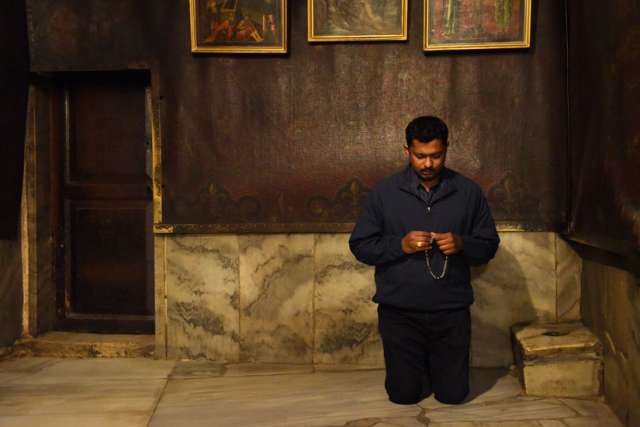Fortunately for us, God is very different. Isaiah recounts God’s grief at Jerusalem’s plight and God’s resolve to make things better. God will not rest until Israel is restored and given new life. Name changes were the first item on the agenda since names were seen as portraying the nature of the person. Gone would be the disparaging names like “forsaken” and “desolate.” Taking their place would be names denoting happiness and worth — names that spoke of God’s delight in Jerusalem. There is even more — God uses marital imagery to speak of what He envisions for Jerusalem. God is deeply in love with Jerusalem and intends to marry her and treat her as a loving husband treats a bride. This is the image of God that we need to give us hope and courage.
We are still accountable for our individual and collective actions. There will be times that we pull the house down on our own heads. But God grieves at our pain and misfortune and will not rest until we are healed and renewed. We can avoid pessimism and despair at either our personal situation or conditions on a larger scale. Secondly, we can avoid judging or condemning others or rejoicing in the misfortune of any person or group. God is as concerned for their happiness and well-being as God is for ours or anyone else’s. Since God’s love is unceasing and unconditional, perhaps we could try to make our love the same.
Talents and personal gifts are often seen as the property of the individual holding them and an indication of their worth. It is so easy to engage in the very human practice of comparison with others. This can result in either feeling superior to others or like a loser. Paul had some challenging words for those that had been touting their spiritual gifts as signs of God’s favour or spiritual superiority. He reminded them that any gifts they claimed to have were merely on loan from God and not their personal possession. Not only that, the only reason they had been granted was to work for the common good and the benefit of others. To use them for selfish or egotistical purposes was in a sense to insult the giver. When we stand before God we will not be asked how talented and smart we were, but how we had used whatever we had for others.
The miracle of the wedding feast at Cana — recounted only in John’s Gospel — is somewhat of a mystery. Unlike Jesus’ many other miracles, this did not involve a healing, exorcism or relief from some sort of physical distress. It appeared that He had not planned on it. He even seemed somewhat irritated at being asked to do something about the wine supply, although He promptly obliged His mother’s request. On the other hand, it was a relief from human distress — the shame and loss of honour to the family of the bride if the guests were not properly provided for.
This miracle highlights an important aspect of the ministry of Jesus. After Jesus had changed the water into wine, the steward who tasted the wine — not aware of what had taken place — remarked that the host had saved the very best wine until last. He observed wryly that most hosts started off with the fine wine but switched to much planer fare when the guests had become too drunk to tell the difference. But this contains a theological message.
In the Old Testament prophetic writings there are a number of references to an abundance of new wine in the last days and dawning of the new age, pointing to a changed world and the advent of the Messiah.
This story is not about marriage; it is about Jesus as the Messianic herald of the new order He came to bring. Even the most ordinary of human activities can be an instrument of God’s revelation and an opportunity for faith.


